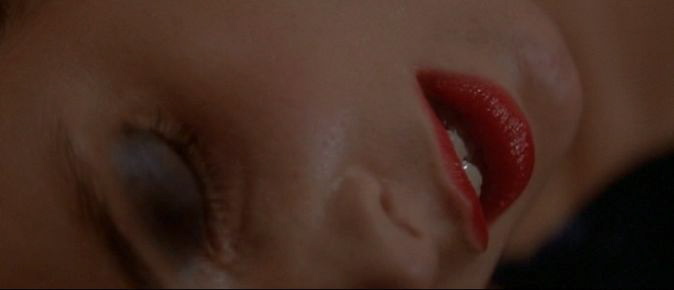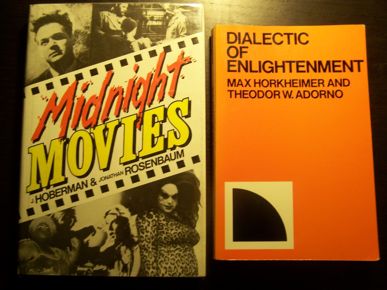 Back to selection
Back to selection
The Blue Velvet Project
Blue Velvet, 47 seconds at a time by Nicholas Rombes
The Blue Velvet Project, #64

Second #3008, 50:08
Dorothy’s face fills the screen, leaving no room for thought. At this moment, there is no possibility of anything outside the frame. This may seem an odd moment, an odd frame, to re-introduce the power of ideology, for there seems to be nothing overtly “political” about this frame. And yet, Dorothy’s suffering here—rendered in a fashion-photography aesthetic—is utterly reactionary and in tune with a certain mid-1980s, Ronald Reagan wave of nostalgia. In their toxic, neural pathway altering chapter from Dialectic of Enlightenment (1944) entitled “The Culture Industry: Enlightenment as Mass Deception” (an essay which remains the ultimate handbook for the cynic who wants to live within truth), Max Horkheimer and Thodor Adorno wrote:
Culture has always played its part in taming revolutionary and barbaric instincts. Industrial culture adds its contribution. It shows the condition under which merciless lie can be lived at all. . . . In films, those permanently desperate situations which crush the spectator in ordinary life somehow become a promise that one can go on living. One has only to become aware of one’s own nothingness, only to recognize defeat and one is one with it all.
Those are tough sentences, and I can see how they might serve as bait for the same sort of attacks on the slyly great film critic J. Hoberman on the occasion of his being let go from The Village Voice. (My very first glimpses of images from Eraserhead came from the cover of Midnight Movies, by Hoberman and Jonathan Rosenbaum, a book which was passed unseen like a rare feather from persons unknown to persons unknown in college, and which caused the break-up of more than one friendship and the forming of new alliances and late-night writing sessions where we tried to detour our fledgling film criticism into super-charged chambers that were lit, we hoped, by the same flashes that illuminated the frames of our favorite films.)

And you learn, painfully, to Kill Yr Idols, all of them. A regular scorched earth policy, not out of hate, but love, or rather that fear of love that motivates you to return Blue Velvet to the realm of ideology, where all art originates. Dorothy, brutalized. And that brutality rendered beautiful on the screen. The Hollywood dream factory. Her face made-up by experts, a gorgeous victim who has learned to “recognize defeat” and turn it around into a love so big that even the screen (that iron cage of images) can’t hold it.
Over the period of one full year — three days per week — The Blue Velvet Project will seize a frame every 47 seconds of David Lynch’s classic to explore. These posts will run until second 7,200 in August 2012. For a complete archive of the project, click here. And here is the introduction to the project.
